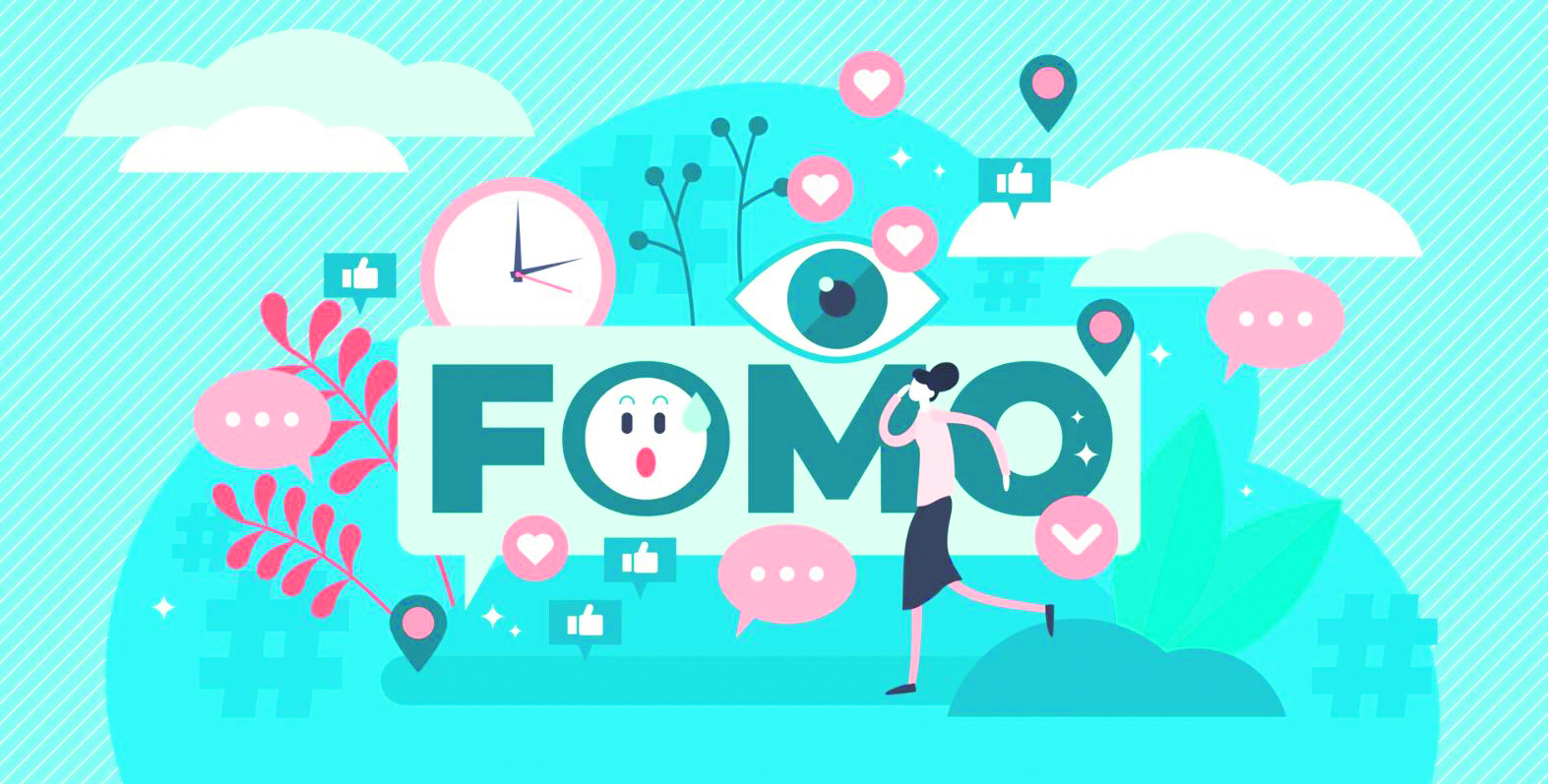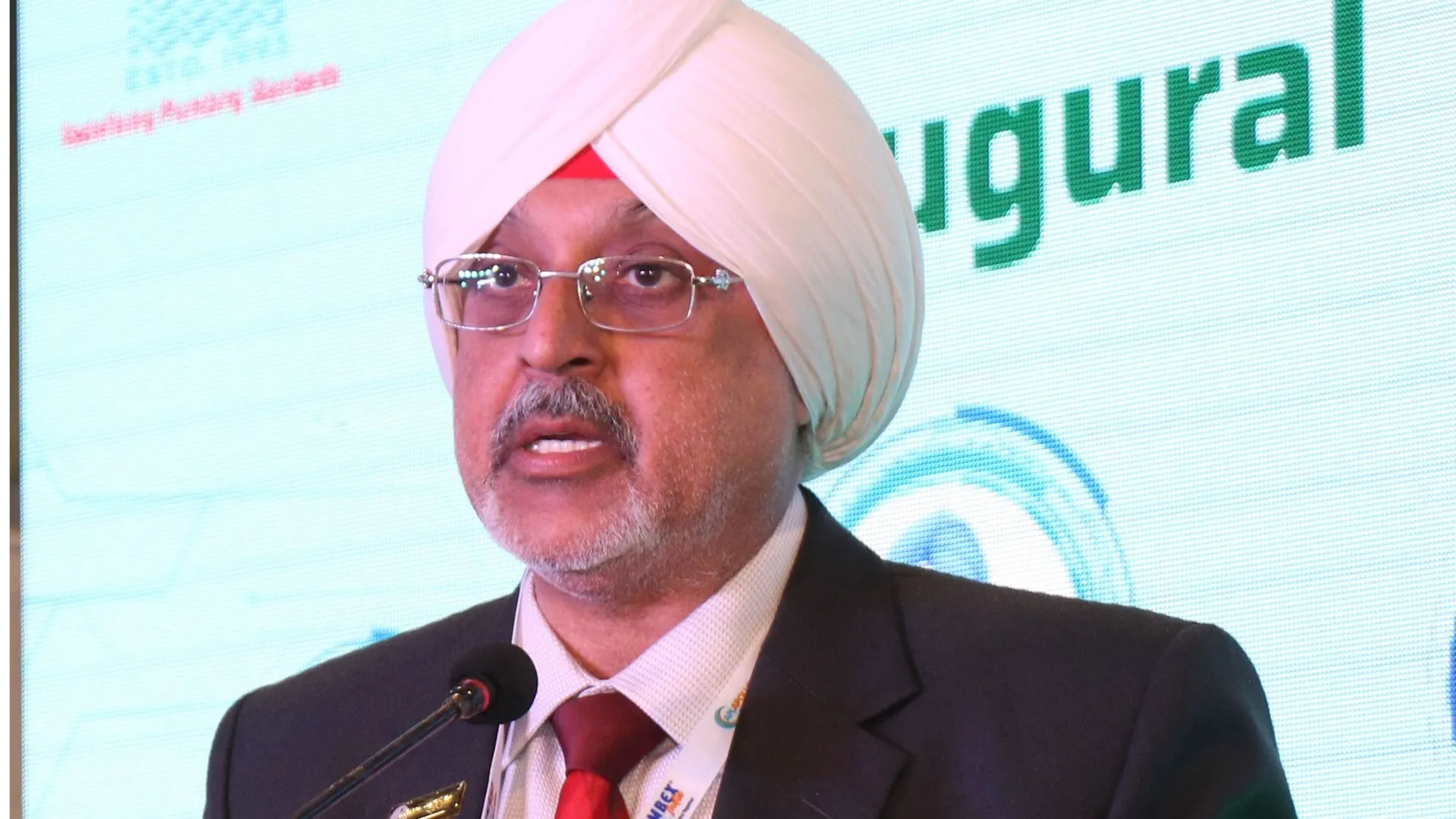The contemporary digital landscape has birthed a ubiquitous term that resonates with the anxieties of our interconnected age—the “Fear of Missing Out” or FOMO. A concept not even on the horizon a decade ago, FOMO has become a pervasive forcefueled by the boom of technology and the omnipresence of social media platforms. In an era where the first thing many of us do upon waking is reaching for our phones, the fear of missing out on the unknown has insidiously seeped into our daily lives thereby shaping our perceptions and interactions.
The morning ritual unfolds with the ritualistic checking of notifications, WhatsApp messages, and social media updates. As our half-asleep minds engage in mindless scrolling, we unknowingly set a particular mindset for the dayi.e.an anxiety-ridden mindset driven by an innate fear of missing out on the unknown. The virtual world beckons even before we step into the tangible one, creating a paradox where our connectedness to the digital realm threatens to overshadow our connection to the present moment.
Our daily commute, once a time for contemplation or appreciating the surroundings, has become an opportunity to assuage the fear of missing out. Stuck in traffic or halted at a red light, our reflex is not to absorb the changing scenery or appreciate the nuances of the present but to instinctively reach for our phones. The fear of missing out compels us to check notifications, unread messages, or missed calls, perpetuating a cycle of distraction.Even the seemingly serene moments, like the conclusion of a flight, are not exempt from the clutches of FOMO. Before the cabin crew announces that we can switch on our cell phones, the cabin is already aglow with the blue hue of screens. Passengers, eager to reconnect with the digital world hurriedly power up their devices driven by the fear that they might have missed something crucial during the duration of the flight.
The fear of missing out extends its grip beyond these seemingly inconsequential moments. It infiltrates our conversations, whether with peers or family. The glow of our screens competes with the warmth of face-to-face interaction. Dialogues are interrupted, and connections are strained as our attention oscillates between the real-time conversation and the virtual realm. The fear of missing out on the constant stream of updates and information overshadows the richness of the present moment.
Furthermore, the fear of missing out has become entwined with the need to align with the perceived ‘it crowd.’ The constant pressure to participate in what everyone else is doing shapes our choices, often leading to blind conformity. In this process, people may find themselves embracing trends or activities not because they genuinely resonate with thembut out of the fear of being left out.This fear-driven conformity can permeate various aspects of our lives from the products we consume to the life choices we make. The desire to be part of the it-crowd coupled with the fear of missing out, creates a scenario where individuals may compromise their authentic preferences and priorities.
In navigating the labyrinth of FOMO it is crucial to recognize the paradox it presents. While the fear of missing out on the unknown compels us to stay connected, it simultaneously distances us from the richness of the present moment. The incessant pursuit of being in the loop can lead to a disconnect from reality, impacting our mental well-being and the quality of our interactions.In essence, striking a balance between staying informed and fully experiencing the present is the key. Acknowledging the fear of missing out and consciously choosing when to engage with the digital realm allows for a more intentional and fulfilling life. The antidote to FOMO lies not in constant connection but in the deliberate cultivation of mindful moments, fostering genuine connections and appreciating the beauty of the now.

Dr. Amreen Sekhon
The author is a double Masters, Ph.D. in Psychology and assistant Professor of Psychology























